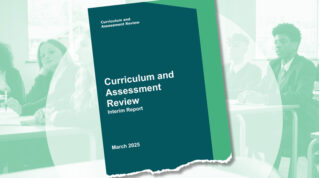Ministers should “urgently” review the maths curriculum to expand financial education and make it compulsory in RSHE lessons, MPs have said.
The national curriculum was beefed up in 2014 to include more elements of financial literacy, particularly in maths.
But the education select committee said schools found it hard to prioritise financial education beyond basic concepts and many teachers “lack confidence” in delivering its content.
Committee chair Robin Walker said: “A decade since it was introduced with broad support, financial education in England needs an urgent update that takes account of how the schools sector, financial pressures on children and consumer habits have changed.
“There is cross-party support for delivering financial education in schools but it hasn’t yet reached its full potential.”
Here are the key recommendations…
1. Urgently review maths curriculum
MPs urged government to “urgently” review the key stage 1 to 4 maths curriculum to expand “the provision and relevance” of financial education.
This could be through a “model curriculum” approach, rather than a “re-drawing” of the national curriculum, they added.
For example, more financial content “based on real-life, problem solving activities” should be included in the secondary curriculum.
2. Make financial education compulsory
The children and social work Act 2017 made it compulsory to teach primary school pupils relationships education and for secondary school pupils to receive relationships and sex education. Health education was subsequently added.
But the government did not include the economic elements of PSHE within these reforms.
In 2018, then education secretary Damian Hinds said it was already taught in maths and citizenship lessons, adding: “I do not consider that further economic education needs be made compulsory.”
MPs said making the economic and financial elements of PSHE statutory would be a “simple and effective way of expanding financial education at both levels and signalling the increased importance of the subject to all students”.
3. Finance education leads at every school or MAT
MPs recommend that each school or multi-academy trust should consider having a “financial education lead”.
They could be a maths, RSHE or citizenship teacher and coordinate financial education across the curriculum.
The government should produce guidance for MATs, school leaders and teachers on how to do this.
Ministers should also consider providing subject knowledge enhancement and continuing professional development to support the role.
4. DfE approved financial education resources
The committee called for the DfE to curate and promote a selection of high quality financial education teaching materials which are easily accessible to teachers and pupils.
DfE should work with subject associations, professional bodies, the Money and Pensions Service and other government departments.
5. Finance education in ITT
MPs urged the DfE to ensure financial education training is available to all trainee teachers. This should be continued through professional development and SKEs in financial education.
Financial education options should be included in the early career framework and national professional qualifications, they added.
6. Review how Ofsted inspects financial education
The committee said Ofsted’s “inadequate evaluation” of financial education in schools “undermines the importance” of it and “adversely affects how it is viewed and prioritised by teachers and school leaders.
“Citizenship in particular is not being appropriately assessed by Ofsted,” they said.
“Inspection under the personal development judgement alone is not the right accountability measure for a subject as important as citizenship and the financial education content it includes.
“Citizenship should be evaluated by Ofsted as part of its quality of education key judgement in addition to personal development.”
MPs said the DfE should work with Ofsted to “review how it can improve its evaluation of financial education”.
7. Participate in financial education PISA
The OECD’s international PISA assessments of education performance include an assessment of financial education. But England and each of the UK nations have opted out of this.
The DfE told MPs it was to reduce the burden on teachers and that participation in maths PISA was sufficient.
But MPs want government to apply to take part for 2025 as it would “demonstrate government’s commitment to improving financial education in England and give the subject more prominence”.
















Your thoughts